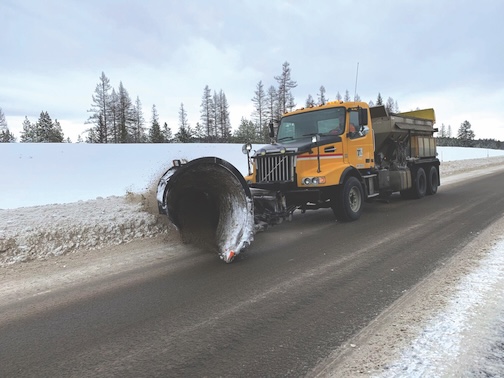Bill would encourage fencing along Oregon highways
Published 7:00 pm Tuesday, March 7, 2023

- Martin
SALEM — Grants for fence construction would become available under a bill meant to prevent livestock on open range from wandering onto Oregon’s busy state highways.
Trending
State transportation officials would identify the riskiest highway stretches and who’s eligible for grants under House Bill 2799, which doesn’t yet specify the amount of money for the grant fund.
“It’s a simple solution to preventing tragedy on Oregon’s roadways,” said Rep. Bobby Levy, R-Echo, during a recent legislative hearing.
Levy represents House District 58, which includes all of Union and Wallowa counties and a portion of Umatilla County.
Trending
Livestock owners are not responsible for fencing in their herds in areas designated as open range, where instead landowners must fence off their properties from roaming animals.
The bill would continue allowing livestock to graze freely while providing money for safety fencing along increasingly congested state highways, said Rep. Mark Owens, R-Crane.
“This bill does nothing to try to put restrictions on open range,” according to Owens.
A proposed amendment to HB 2799 would create requirements for using wildlife-friendly fencing where possible, which is recommended by the Oregon Hunters Association.
“We have nothing but support for the bill,” said Amy Patrick, OHA’s policy director.
Most travelers don’t understand the state’s open range laws and the Oregon Department of Transportation tries to deter collisions with road signs depicting cows, said Matt McElligott, a rancher near North Powder.
“Many of these cow signs are stolen and put up in fraternities and dorm rooms,” he said.
Where fencing already exists along state highways, it can be torn down by migrating elk and vehicle accidents, but no compensation is currently available for repairs, said Cheryl Martin, an Eastern Oregon rancher.
The cost of fencing ranges from about $8,000 to $10,000 per mile, so HB 2799 could help landowners fix damage that occurs for reasons beyond their control, she said.
Martin said she’s not usually a supporter of more government intervention but believes the bill’s intent of preventing collisions is worthwhile.
“It’s not only an inhumane situation for the cow, but it’s extremely dangerous to cars and their passengers,” she said.
Rep. Court Boice, R-Gold Beach, said it’s his understanding that most deer and elk can jump a fence that’s 6 feet tall but not 7 feet, though he’s not sure about mule deer.
“You might get stuck on the technical advisory committee,” joked Rep. Ken Helm, D-Beaverton.









